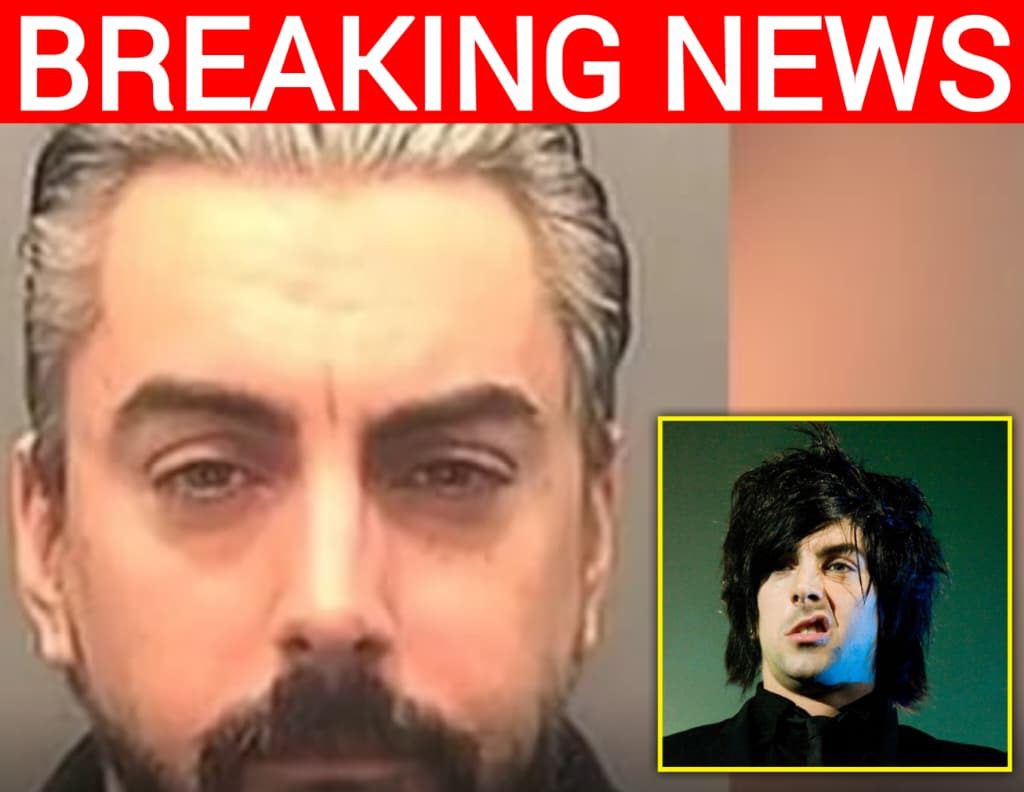From Rock Stardom to a Tragic End: Former Lostprophets Frontman Ian Watkins Killed in Prison Attack While Serving 29-Year Sentence
Ian Watkins, the former frontman of the Welsh rock band Lostprophets, has died after being attacked in prison, marking a grim end to one of Britain’s most shocking downfalls in music history. Authorities confirmed that the 47-year-old was found unresponsive in his cell at HMP Wakefield, where he was serving a 29-year sentence for child sex offenses. Emergency crews were called to the scene, but Watkins was pronounced dead shortly after. Police have since arrested two inmates, aged 25 and 43, on suspicion of murder.

HMP Wakefield, often nicknamed “Monster Mansion,” houses some of the United Kingdom’s most dangerous prisoners. It is one of the highest-security facilities in the country, where notoriety can make an inmate both infamous and vulnerable. According to reports, the attack on Watkins occurred during the morning of October 11, 2025, in one of the prison’s secure wings. While details remain limited as investigators work through the scene, the Prison Service confirmed that the death is being treated as suspicious.

Watkins’ name has been synonymous with scandal ever since his 2013 conviction. At the height of his fame in the early 2000s, Lostprophets were among the UK’s most successful alternative rock bands, selling millions of albums and headlining major festivals. Their hit singles “Last Train Home” and “Rooftops” were anthems of a generation, and Watkins’ charismatic presence helped define the band’s image. But behind the scenes, his private life was unraveling. When his crimes came to light, the revelations shocked the music world and devastated longtime fans. The other members of Lostprophets immediately disbanded, issuing public apologies and expressing deep remorse over the actions of their former lead singer.

During his incarceration, Watkins lived mostly in isolation, reportedly kept separate from the general prison population due to threats from other inmates. In August 2023, he survived a serious attack that left him hospitalized, prompting renewed scrutiny over the safety protocols for high-profile offenders. Despite those measures, it appears that tensions never truly subsided. Those familiar with the culture of Wakefield Prison note that certain inmates live under constant risk due to the nature of their crimes — and Watkins was among the most infamous.

His death has reignited a complicated public reaction. Many people who followed the case over the years expressed that his actions had left scars that could never fully heal. For the families of victims, the news of his killing brought a mix of relief and unease — relief that the story had reached its conclusion, and unease that it ended in more violence. Meanwhile, a generation of former fans who once idolized him were reminded of how drastically a person’s image can collapse when the truth emerges.
In the hours following the announcement, social media platforms flooded with reactions. Some messages mourned the wasted potential of a once-talented artist who lost everything to his own actions. Others saw his death as a grim example of justice within the walls of a prison system where reputations can be as deadly as weapons. For the music industry, the story closed a chapter it had long buried — one marked by betrayal, disbelief, and the slow erosion of innocence among those who had once sung along to his words.

As investigations continue inside Wakefield Prison, officials have promised full transparency surrounding the incident. Yet no inquiry will undo what has already unfolded. Ian Watkins’ story began with applause and ended in isolation, his final moments spent far from the spotlight that once defined him. What remains is a haunting cautionary tale — a reminder that fame without conscience can only lead one way: from glory to ruin, and ultimately, to silence.



